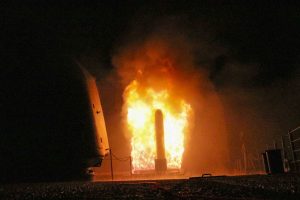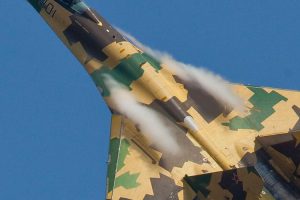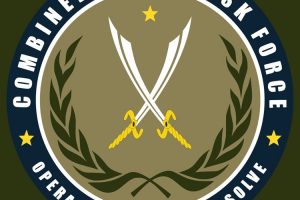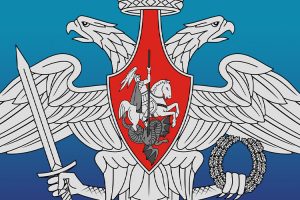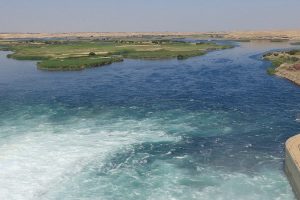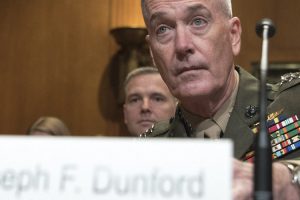The PYD, the largest Kurdish political party in Syria, is to be “involved” in the next round of United Nations-brokered peace talks in Geneva, according to an advisor to the party.
Sihanouk Dibo told the Iraq-based Kurdistan 24 television station on June 6 that the party had received a detailed letter from UN Syria envoy Staffan de Mistura.
“De Mistura’s letter contains 29 points explaining the roadmap of the transition period for Syria, and I confirm that the PYD is involved in the upcoming round of Geneva talks,” Dibo said.
It is unclear what the PYD involvement will be, whether as a full party to the talks or in some other capacity. Grasswire contacted the PYD’s European press office seeking clarification but has not received a reply. De Mistura has not commented on the matter.
Kurdish representation in earlier rounds of talks was limited to the Syrian Kurdish National Council (ENKS), part of the opposition Syrian National Coalition.
Blocked by Turkey
Including the PYD in a new round of peace talks marks a significant change in policy towards the party. Turkey has consistently blocked the PYD from being involved in peace talks because it views the party as the Syrian branch of the Turkish Kurdish PKK party, which is listed as a terrorist organisation by Turkey, the United States, Russia, the United Kingdom, the European Union, NATO and others.
Turkey does not distinguish between the PKK, the PYD and the armed Syrian YPG and YPJ militias. These groups are technically the armed services of the Kurdish Supreme Committee, the interim coalition government of the mainly Kurdish-controlled region in north-eastern Syria which declared autonomy in Rojava in 2013. They are perhaps better described as the armed wings of the PYD.
PYD members consider jailed PKK leader Abdullah Öcalan as their ideological leader. The PYD’s party line is that both parties share an ideological affinity, but that the PKK does not interfere in Syrian Kurdish affairs.
SDF ethnic diversity
Kurds make up the vast majority of the Syrian Democratic Forces currently engaged in international coalition-backed offensives against the Islamic State around Manbij in northern Aleppo province, and further east around Raqqa, the de facto IS capital in the country.
Ahead of the offensives, the US sent up to 250 military “advisors” into Syria, the majority of them based near Kobane. A key reason they were there was to recruit as many Arab fighters as possible to better-balance SDF ethnic diversity in the eyes of coalition nations, particularly Turkey.
According to White House spokesperson Josh Earnest, around 60% of SDF members are Kurdish, with Arabs, Assyrians, Armenians, Turkmen and other ethnic groups making the remainder. US Central Command spokesman Colonel Patrick Ryder said around 3,000 Arab fighters were taking part in the Manbij offensive, alongside around 500 Kurds.
In late May, during first days of the Raqqa offensive, several US special forces troops were filmed wearing YPG and YPJ patches on their uniforms. Although a regular “hearts and minds” tactic of special forces in other theatres, Turkey reacted angrily.
Foreign Minister Mevlüt Çavuşoğlu said that such images of an ally of Turkey were unacceptable and that Turkey’s “advice for the US is that they should wear [Islamic State], al-Nusra, and al-Qaida insignias when they go to other places in Syria and should wear Boko Haram insignias in Africa.” A Pentagon spokesperson later said that wearing the patches was “unauthorized” and “inappropriate” and that it had issued a directive to troops to no longer wear the patches.
The moving red line
The city of Manbij lies in the so-called Manbij Pocket, an area of northern Aleppo province west of the Euphrates bordering Turkey. The pocket divides the non-contiguous Rojava cantons – Afrin to the west and Jazira and Kobane in the east. Turkey has long insisted that the Kurds should not be allowed to expand their territory into this region, an expansion that has the potential to join the cantons together.
This red-line position of “no Kurds west of the Euphrates” relaxed somewhat in recent days. Turkish Foreign Minister Mevlüt Çavuşoğlu said on June 7 that YPG logistical support in the Manbij pocket was acceptable to Turkey as long as no YPG fighters remained there after the operations. He said that the US had given Turkey guarantees to that effect, while reiterating that it was “unacceptable” that the US was cooperating with the PYD and YPG.
After much talk about Turkish ground forces moving into Syria, it was announced on June 1 that the Turkish Foreign Ministry and National Defense Ministry will begin expropriating the military while the Turkish Armed Forces (TSK) will begin to prepare troops for a possible cross-border operation.
Complications in wider Kurdistan
Although it is by far the larger political force, the PYD makes up half of the Kurdish Supreme Committee. Its coalition partner is the Kurdish National Council, which is backed by of the Iraqi Kurdish Regional Government President Massoud Barzani. In March 2015, the PYD along with other partners including the PKK announced its intention to declare the Democratic Federation of Rojava – Northern Syria, a proposal for a federal state within the nation of Syria. The move is strongly resisted by Iraq-facing Kurdish parties in Syria and the Barzani dynasty, which favours independence for Iraqi Kurdistan, and wider Kurdistan.
In January, Masoud Barzani said that global leaders should acknowledge the failure of the century-old Franco-British Sykes-Picot agreement that eventually led to the creation of the nation states of the modern Middle East. He said that a new deal paving the way for a Kurdish state should be looked at, and that Iraq and Syria in particular would never again be unified and that “compulsory co-existence” in the region was unworkable.
His singling out of Iraq and Syria is notable given the large majority-Kurdish regions of Turkey and Iran. Turkey’s PKK has shifted in recent years from calls for an independent Turkish Kurdish state, to the autonomous or federal idea also mooted for Syria.
Recent years have seen a warming of relations between the KRG leadership and Turkey, as the relationship between KRG and the national Iraqi government has significantly deteriorated. Iraqi Kurdistan has had its share of central government funding slashed. The seizure of Kirkuk by the KRG ahead of Islamic State and the subsequent redirection of the flow of the city’s oil to Turkey particularly angered Iraqi leaders.
The strained relations have bolstered Barzani’s calls for an independent Kurdistan.

